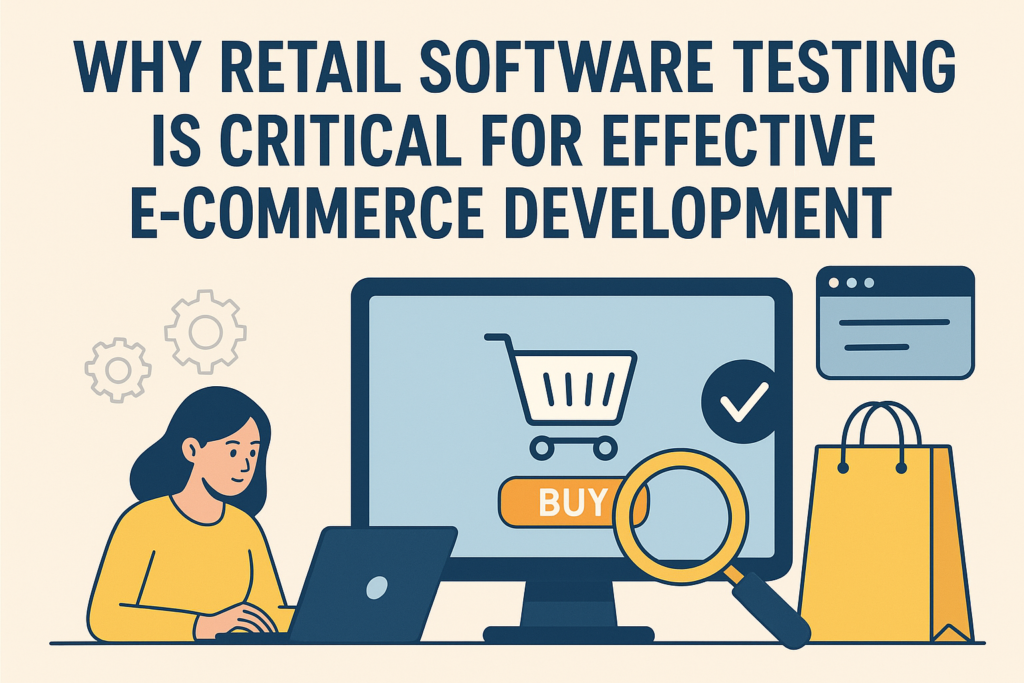How Can Shipping Software Reduce Ecommerce Fulfillment Costs?

Ecommerce businesses are constantly looking for ways to cut down on costs without compromising efficiency. One major area where expenses can pile up quickly is order fulfillment. From packaging to delivery, each step involves time, labor, and money. However, the right shipping software can streamline the entire fulfillment process and significantly reduce costs. Here’s how.
What Is Shipping Software?
Shipping software is a digital tool designed to automate and manage various shipping-related tasks in an ecommerce setup. It allows businesses to compare carrier rates, print labels, track shipments, manage returns, and coordinate logistics. The software also integrates with ecommerce platforms, marketplaces, and warehouses for smooth order management.
How Can Shipping Software Reduce Ecommerce Fulfillment Costs?
Comparing Carrier Rates in Real-Time
One of the top ways shipping software reduces fulfillment costs is by providing access to multiple carrier options. Without software, ecommerce sellers may rely on one or two shipping companies, missing out on better deals. Shipping software compares real-time rates across different carriers, ensuring that every package is shipped using the most cost-effective option.
This helps avoid overpaying for shipping and improves profit margins—especially for businesses dealing with high shipping volumes.
Reducing Manual Errors
Manual data entry during the fulfillment process often leads to costly mistakes—wrong addresses, incorrect package weights, or missed shipments. These errors can result in returns, customer dissatisfaction, and additional shipping costs.
Shipping software automates key processes like address validation, weight calculations, and order updates. This reduces human error, saving both time and money in the long run.
Streamlining the Fulfillment Workflow
Shipping software doesn’t just help with sending out parcels—it plays a key role in the entire fulfillment cycle. From order import to label printing and shipment tracking, it keeps everything organized in one place. This reduces the need for multiple platforms or manual coordination between systems.
For example, instead of logging into various sales channels to check orders, the software pulls data from all platforms into a single dashboard. This centralized system improves operational speed, reduces labor, and minimizes unnecessary costs.
Automated Label Printing and Documentation
Another significant expense in ecommerce shipping is label printing and documentation. Manually generating labels is time-consuming and often leads to mistakes. Shipping software automates this process by pulling product and customer details directly from the order management system.
Many tools also handle customs documents, commercial invoices, and return labels automatically. This makes international shipping much easier and more accurate, reducing delays and fines associated with incorrect paperwork.
Inventory and Shipping Integration
Inventory management plays a major role in keeping shipping costs under control. Shipping software often includes or integrates with inventory tracking tools. This ensures that only in-stock items are promised to customers, preventing missed shipments and backorder costs.
For example, real-time updates on stock levels help businesses make better purchasing and shipping decisions, reducing warehousing and transportation waste.
Faster Delivery with Smart Routing
Shipping software can select the nearest fulfillment center or warehouse to ship an order. This reduces shipping distance and costs. It also enables faster delivery, which improves customer satisfaction and reduces the need for costly expedited shipping options.
With smart routing, businesses can optimize which carrier or location to use for each order—without spending hours on manual planning.
Labor Cost Savings
Manual shipping processes require more manpower. Employees must handle tasks like checking orders, choosing carriers, printing labels, and updating tracking information. Shipping software automates much of this, allowing businesses to operate efficiently with a smaller team.
Some advanced software platforms also offer barcode scanning and warehouse automation tools that further cut down on labor time and costs.
How Willow Commerce Helps Ecommerce Brands Save on Shipping?
A great example of shipping software that delivers on all these points is Willow Commerce. Their ecommerce software platform includes a dedicated shipping module designed to help online businesses ship smarter and cheaper.
Willow Commerce offers up to 10% savings on shipping by ensuring each package is sent using the best carrier at the lowest price. It also supports over 70+ channel integrations, allowing you to manage orders from multiple marketplaces in one place. The platform’s automation features help reduce labor costs by up to 25%, all while processing millions of orders efficiently.
From automatic label generation to real-time inventory sync and smart shipping decisions, Willow Commerce combines the right tools to help businesses reduce fulfillment costs and improve delivery operations.
Ecommerce fulfillment doesn’t have to drain your budget. With smart shipping software, businesses can cut unnecessary expenses, improve delivery speeds, and reduce manual workload. Features like real-time rate comparisons, automated workflows, and centralized dashboards all contribute to a more efficient and affordable shipping process.
Whether you’re a small shop or a large-scale seller, adopting shipping software is a practical step toward better cost control and happier customers. For those looking to take their operations to the next level, platforms like Willow Commerce offer a complete solution to simplify, scale, and save in ecommerce fulfillment.

Why Retail Software Testing is Critical for Effective E-commerce Development?

How Sales Teams Increased Productivity with Parallel Dialers

Curtain Dry Cleaning and Leather Sofa Cleaning – Reliable Care by Duo Nini

The Complete Guide to Growing on Twitch: Should You Buy Twitch Followers?

How Technology Is Changing Addiction Recovery in the Digital Age.

Why Retail Software Testing is Critical for Effective E-commerce Development?

How Sales Teams Increased Productivity with Parallel Dialers

Curtain Dry Cleaning and Leather Sofa Cleaning – Reliable Care by Duo Nini








